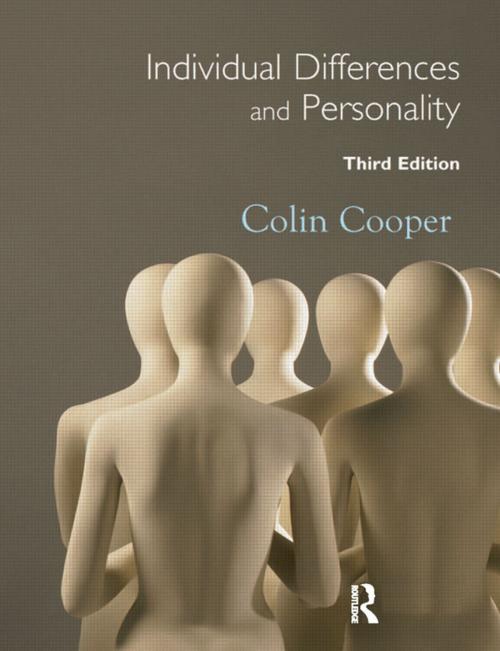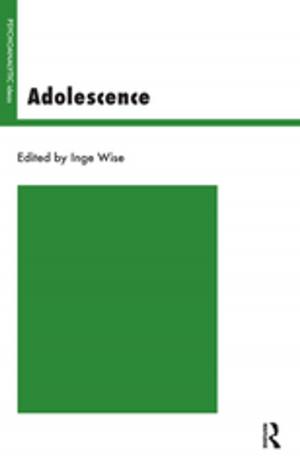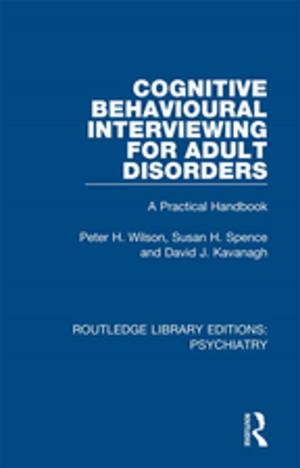Individual Differences and Personality
Nonfiction, Health & Well Being, Psychology, Personality, Social Psychology| Author: | Colin Cooper | ISBN: | 9781444164374 |
| Publisher: | Taylor and Francis | Publication: | January 30, 2015 |
| Imprint: | Routledge | Language: | English |
| Author: | Colin Cooper |
| ISBN: | 9781444164374 |
| Publisher: | Taylor and Francis |
| Publication: | January 30, 2015 |
| Imprint: | Routledge |
| Language: | English |
Colin Cooper's 'Individual Differences' has been a favourite among lecturers and students of differential psychology since it was published in 1997. It is unique in its comprehensive coverage of both personality theories and the methodological issues associated with personality and psychometric testing.
This new edition has been fully revised and expanded to include recent developments in the field. There is also a new chapter on Emotional Intelligence and expanded coverage of the Big 5 model of personality and positive psychology. Cooper also discusses influential new fields such as cognitive epidemiology and a new chapter on practical applications demonstrates how what has been learned can be applied to everyday life from recruitment to predicting whether psychopaths will reoffend.
The accompanying website provides comprehensive support for both students and lecturers, including MCQs, sample exam questions, PowerPoint presentations, revision flashcards, interactive glossary, and revision summaries.
An informative and enjoyable trip through personality and psychometrics, this book is essential reading for all students wishing to gain a broad understanding of this fascinating field.
Colin Cooper's 'Individual Differences' has been a favourite among lecturers and students of differential psychology since it was published in 1997. It is unique in its comprehensive coverage of both personality theories and the methodological issues associated with personality and psychometric testing.
This new edition has been fully revised and expanded to include recent developments in the field. There is also a new chapter on Emotional Intelligence and expanded coverage of the Big 5 model of personality and positive psychology. Cooper also discusses influential new fields such as cognitive epidemiology and a new chapter on practical applications demonstrates how what has been learned can be applied to everyday life from recruitment to predicting whether psychopaths will reoffend.
The accompanying website provides comprehensive support for both students and lecturers, including MCQs, sample exam questions, PowerPoint presentations, revision flashcards, interactive glossary, and revision summaries.
An informative and enjoyable trip through personality and psychometrics, this book is essential reading for all students wishing to gain a broad understanding of this fascinating field.















